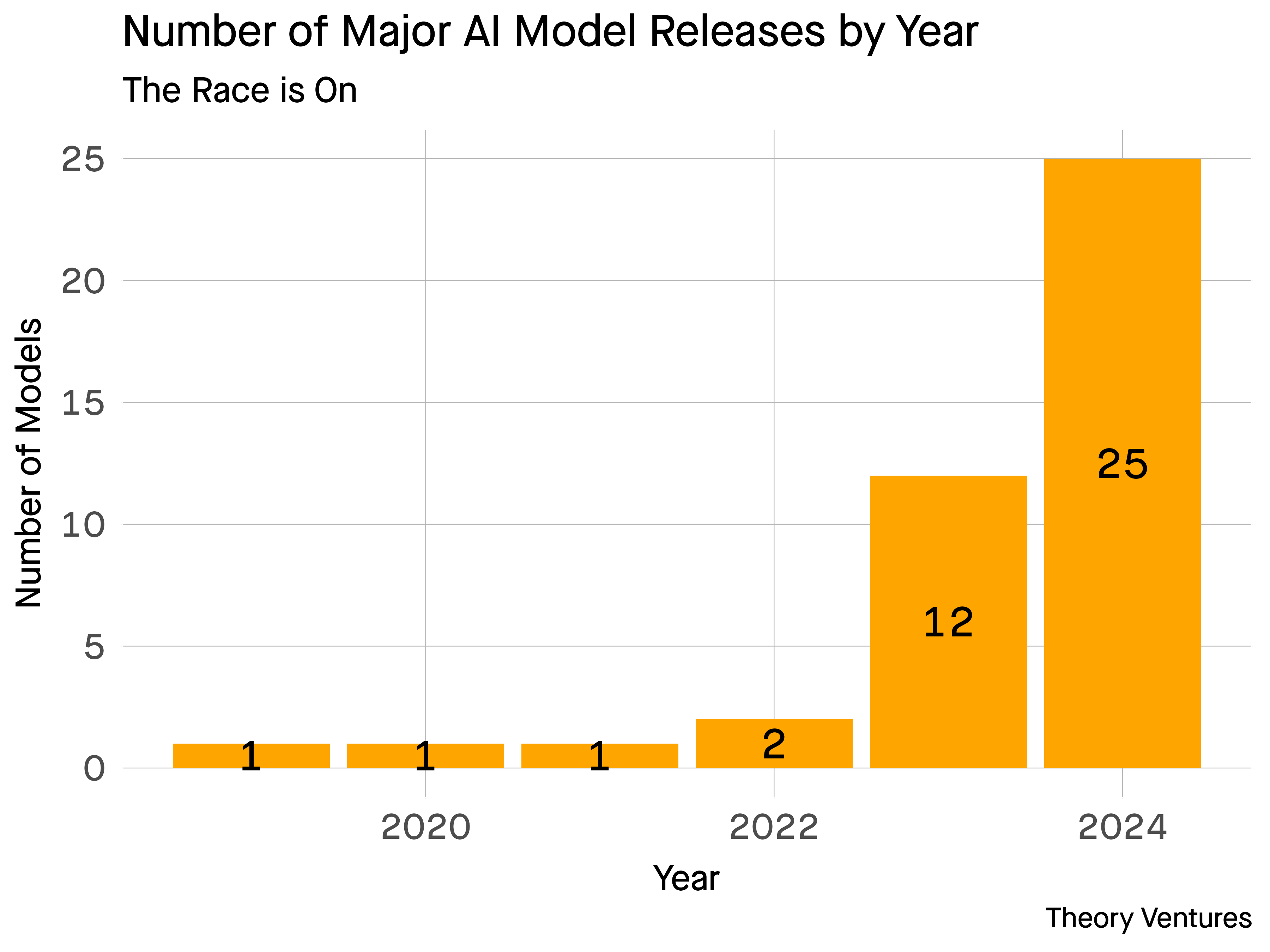During the era of big data, data gravity was the core strategic imperative. Wherever the biggest dataset resided, customers ran their compute workloads that generated all of the profit and revenue growth for the last generation of data companies.
Today, the battle is for AI gravity.
Why? AI requires orders of magnitude more compute than other workloads, so there’s much more money & profit to be made serving customers running them.
Facebook and Google both announced very similar strategies of overinvesting in AI data centers. Google is on a trajectory to invest $50 billion this year. Amazon & Microsoft are also deploying similar tens of billions for the same purpose.
Within AI, the switching costs today are modest. Most large-scale AI products have yet to be built. Many enterprises are in the process of testing. Switching from OpenAI to Claude to Gemini to Mistral is still tractable & some are running comparative evaluations before picking.

There’s ample reason to wait. The proliferation of different model types has created a cornucopia of choice. Open & closed ; small/medium/large ; models built for images or code or text ; all of these are in rapid development.
In addition, the underyling systems to manage AI applications have changed rapidly. Initially, an AI app meant wrapping the AI. Then we began to add routers, mixtures of experts, & small language models. Now we’re realizing the LLM architecture isn’t the best at planning work : reinforcement learning is better & must be integrated.
So AI products aren’t electric motors with one or two moving pieces, but more like the gas powered engines with many moving parts. It’s easy to quote Knuth here : “Premature optimization is the root of all evil.” Better for large enterprises to wait until there’s a reference architecture that’s been proven to work.
Plus, data movement is less expensive than in the previous era. AWS & others have stopped charging to move data. New data formats like Iceberg simplify data movement. Both have decreased switching costs.
We should expect to see increasingly stiff & significant competition for AI gravity. OpenAI announced free fine-tuning for models to entice customers to use their platform. AWS cut prices more than 100 times in its first five years. History will rhyme with AI.
Customers & startups will benefit from this intense competition with better models, cheaper inference costs, & faster innovation as the incumbents spend their massive balance sheets to exert the greatest AI gravity.